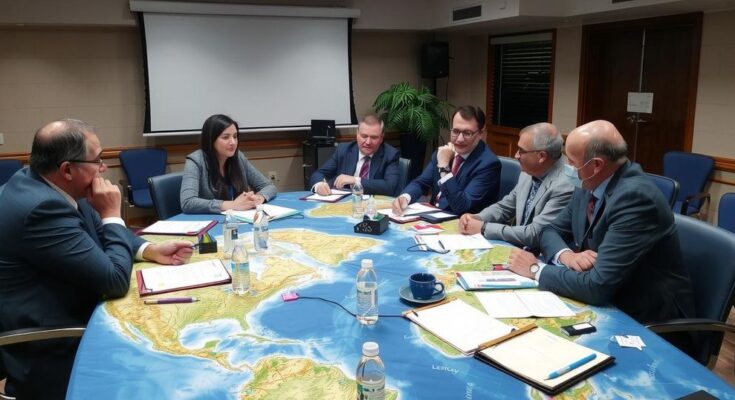Emma Pinchbeck, the UK’s Climate Change Committee chief executive, demonstrated a concerning lack of understanding regarding climate science and economic factors in her first interview. Advocating for significant lifestyle changes without recognizing their costs, she dismissed job losses from transitioning industries, raising questions about the committee’s direction amidst criticisms of her scientific comprehension.
Emma Pinchbeck, the newly appointed chief executive of the UK’s Climate Change Committee, revealed an alarming lack of understanding regarding climate science during her recent interview on BBC’s “Sunday with Laura Kuenssberg.” Tasked with guiding the UK toward achieving its Net Zero goals, her remarks suggested indifference to the economic ramifications of the proposed green policies.
In her interview, Ms. Pinchbeck advocated for drastic lifestyle alterations, such as transitioning from gas boilers to heat pumps and from petrol vehicles to electric cars, despite the significant financial burden these changes impose on consumers. She urged the public to consider second-hand purchases and to minimize international travel, while hypocritically rationalizing her own extensive travel to an international climate conference.
When questioned about the potential economic impact of the green transition, particularly regarding job losses in industries like steel production, Ms. Pinchbeck dismissed concerns, asserting, “Change always brings winners and losers.” This response underscores a troubling dismissal of the social costs associated with shifting to greener policies, particularly for communities reliant on traditional industries.
Moreover, her comments on the risks of severe weather related to climate change highlight a concerning lack of scientific clarity. While she cautioned about the mounting dangers of such events, the Intergovernmental Panel on Climate Change has stated that there is low confidence in linking human activities directly to increased flooding incidents. This inconsistency raises questions not only about her grasp of the science underpinning climate change but also about her suitability to guide financial decisions on this critical issue.
The interview serves as a striking example of the disconnect between climate policy proponents and the realities faced by citizens and industries. Ms. Pinchbeck’s prior background as a lobbyist for renewable energy and her role at the WWF might partially explain her one-dimensional perspective on climate solutions, which appear to prioritize ideological consistency over balanced economic consideration.
With the Climate Change Committee at the forefront of shaping Britain’s environmental agenda, Ms. Pinchbeck’s apparent naiveté regarding both the socio-economic consequences of green policies and the scientific complexities of climate change itself raises significant concerns about the direction of the UK’s climate initiatives.
The Climate Change Committee (CCC) is a pivotal governmental body in the United Kingdom, established to advise the government on reducing greenhouse gas emissions and meeting legally binding climate targets. Emma Pinchbeck recently took over as the chief executive and has begun to articulate her vision and strategies for achieving the Net Zero target. The interview she conducted brought to light not only her stance on climate action but also an apparent disregard for the economic realities and scientific nuances surrounding climate change debates, prompting widespread discussion about the competence and understanding of those in charge of climate policy.
In conclusion, the interview with Emma Pinchbeck reveals significant concerns about the leadership of the Climate Change Committee regarding climate science and economic policy implications. Her recommendations for shifting consumer behavior do not account for the heavier financial burden on the populace, nor do they adequately grasp the complexities of climate impacts as articulated by authoritative scientific bodies. As the CCC moves forward in its climate strategy, it remains crucial that a more holistic understanding of the interplay between environmental goals, economic realities, and scientific truths is fostered.
Original Source: www.spiked-online.com




